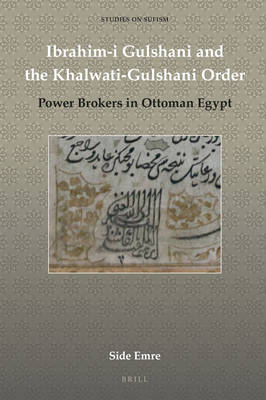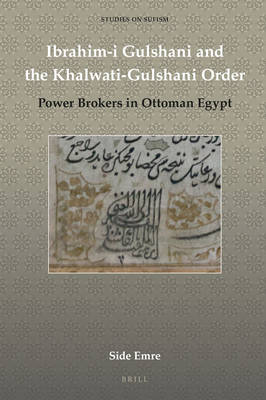
- Afhalen na 1 uur in een winkel met voorraad
- Gratis thuislevering in België vanaf € 30
- Ruim aanbod met 7 miljoen producten
- Afhalen na 1 uur in een winkel met voorraad
- Gratis thuislevering in België vanaf € 30
- Ruim aanbod met 7 miljoen producten
Zoeken
€ 335,45
+ 670 punten
Omschrijving
In Power Brokers in Ottoman Egypt, Side Emre documents the biography of Ibrahim-i Gulshani and the history of the Khalwati-Gulshani order of dervishes (c. 1440-1600). Set mainly in Mamluk-Egypt, and in the century following the region's conquest by the Ottomans, this book analyzes sociopolitical dialogues at the geographic peripheries of an empire through the actions of and official responses to the Gulshaniyya network.
Emre argues that the members of this Sufi order exerted social and political leverage and contributed significantly to the political culture of the empire and Egypt. The Gulshanis are uncovered as unexpected figures among the roster of influential players, in contrast with empire-centered historiographies that depict Ottoman ruling and learned elites as the primary shapers and narrators of the fates of conquered provinces and peoples. The Gulshanis' political and cultural legacy is situated within an analysis of perceptions of Sufism in the early modern Ottoman world.
Emre argues that the members of this Sufi order exerted social and political leverage and contributed significantly to the political culture of the empire and Egypt. The Gulshanis are uncovered as unexpected figures among the roster of influential players, in contrast with empire-centered historiographies that depict Ottoman ruling and learned elites as the primary shapers and narrators of the fates of conquered provinces and peoples. The Gulshanis' political and cultural legacy is situated within an analysis of perceptions of Sufism in the early modern Ottoman world.
Specificaties
Betrokkenen
- Auteur(s):
- Uitgeverij:
Inhoud
- Aantal bladzijden:
- 446
- Taal:
- Engels
- Reeks:
- Reeksnummer:
- nr. 1
Eigenschappen
- Productcode (EAN):
- 9789004341012
- Verschijningsdatum:
- 9/03/2017
- Uitvoering:
- Hardcover
- Formaat:
- Genaaid
- Afmetingen:
- 155 mm x 236 mm
- Gewicht:
- 793 g

Alleen bij Standaard Boekhandel
+ 670 punten op je klantenkaart van Standaard Boekhandel
Beoordelingen
We publiceren alleen reviews die voldoen aan de voorwaarden voor reviews. Bekijk onze voorwaarden voor reviews.











